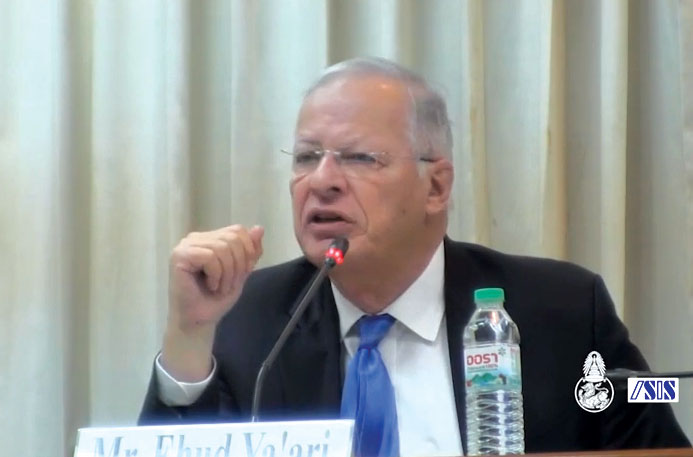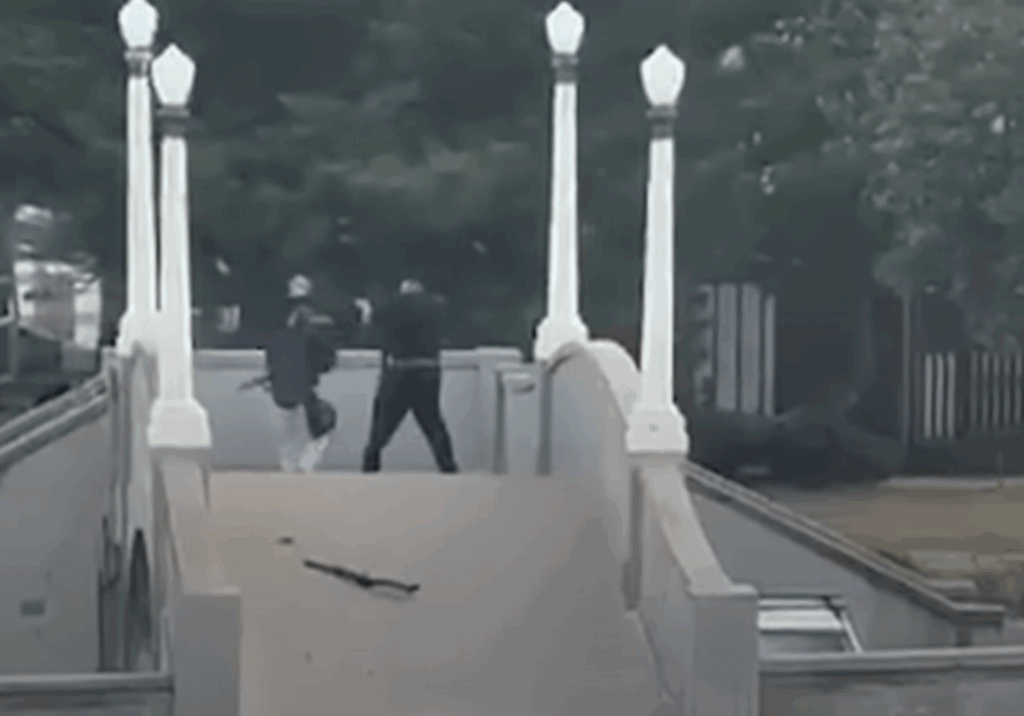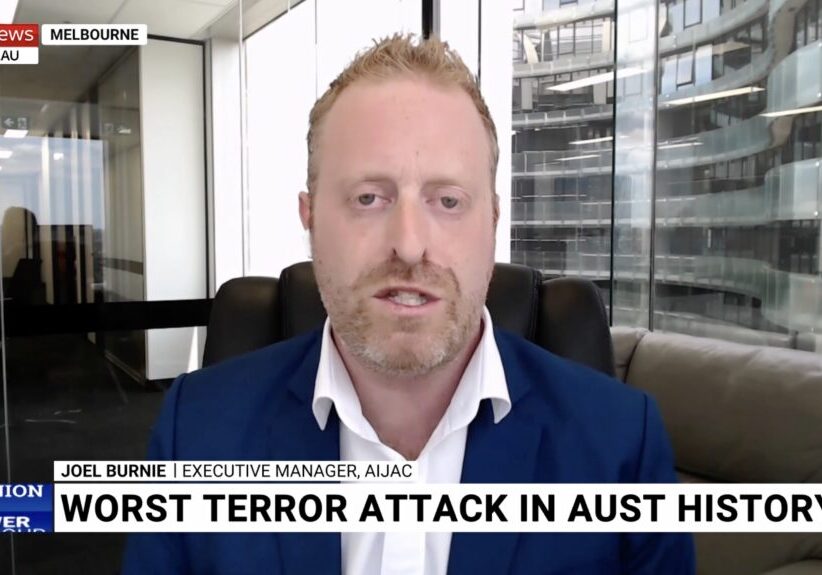Australia/Israel Review
Nine insights into the current Mideast turmoil
Feb 26, 2015 | Ehud Yaari

Ehud Yaari
1. We are witnessing the struggle to define Islam in the modern age
This is the most crucial battle raging today in the world and the most important divide on the global landscape. It’s a clash between a forward leaning tolerant enlightened reading of the holy texts, and the medieval fundamentalist and jihadist ideology offered by the likes of the IS, and in a partially similar way by some of the Shi’ites such as the Islamic Republic of Iran and its proxies Hezbollah. Will Islam be a guide to life, or a ritual of death?
2. This struggle to define Islam must be conducted first and foremost by Muslims themselves
We can easily detect some inclination in this direction of Muslims taking a stand against it as demonstrated, for example, lately by President Abdel Fattah al-Sisi in Egypt during his latest speech at Al-Azhar University, the most important Islamic scholarly institution in the world, where he challenged Islamic scholars to take back Islam from the extremists. There are other examples of Muslims taking a very clear cut stand against the doctrine of IS as represented, for example, amongst the Palestinians by the movement which calls itself Wasatia – “the middle road” – led by Professor Mohammed Dajani. But so far these efforts are not loud enough and not orchestrated enough.
3. The war against IS and militant Islamism is more than a military challenge
Although many are willing to take part militarily in the campaign against IS, it must be understood that this is, above all, a war to be waged on the ideological and the intellectual level. Jihadism needs to be defeated not just in combat, but mainly in the mosques within the education system. Scholars and religious personalities must spearhead this effort.
4. Conversely, the war against IS and militant Islamism also requires a determined military response
Although the main battleground is the war of ideas, in the short term, military success against IS is indispensable. Such an outcome will not be possible at the current level of military investment.
You cannot uproot IS from the Tigris and Euphrates valleys and other places through a limited air campaign. The good news is that, in comparison to the wars in Iraq and Afghanistan, the ground campaign that would be required would be small – no more than 30,000 troops in my estimation. The goal of this operation would be to dismantle the IS institutions and downgrade it to merely a terrorist organisation. It’s an attainable goal, and absolutely crucial.
5. In order to weaken jihadism, you have to tackle its ideological roots
The main impediment to successfully confronting extremism is the lack so far of a cohesive, coherent and comprehensive argument to demolish the foundations of the vast body of literature created from Ibn Taymiyyah – the extremist Muslim scholar of the 13th century – up to 20th century Egyptian Muslim Brotherhood political philosopher Sayyid Qutb. According to his ideology, Jihad is not an appendix to the other duties of a good Muslim, it is the main one. All the Islamist terror groups today are disciples of Qutb. One has to answer every single claim made by the founding fathers of jihadism and refute them one by one. Again, only Muslims can do this.
6. Extremist Islam will continue to grow if left unchecked within the Muslim community
As long as the preachers of intolerant and hateful interpretations of Islam are able to gain ground among young Arabs and other Muslims, the rest of the world will suffer the consequences reflected in the spread of Jihadism, breeding terrorism.
This is true not only for Europe or America but also for Asia and Southeast Asia as we can all see in many places, from the Uighurs in China, to the Central Asian republics, and the Caucasus – which has its own rebellion and has declared itself one of the provinces of IS.
7. Iran, which promotes Shi’ite jihadism, can’t be an ally against Sunni jihadism
Iran and its militias, formidable militias in Iraq, Lebanon, Yemen or Syria, cannot be regarded as a trustworthy ally against Sunni Salafi jihadism because Iran is merrily promoting a Shi’ite version of the same extremist warlike reading of Islam. You cannot win the war on terror with terror responses. You cannot combat IS clerics who issue fatwas allowing burning people alive, with Iranians and their proxies, who introduced the tactics of suicide bombing.
8. The West must understand that the Muslim Brotherhood is not moderate, but extremist
At the end of the day, it was and is the Muslim Brotherhood which serves as the incubator for jihadism. President Obama’s view of the Muslim Brotherhood as moderate Islamists as evidenced in his 2009 Cairo speech to the Muslim world was unfounded. Even the Arab Gulf States and others now realise this danger. It’s revealing to note the ideological links between the Muslim Brotherhood – as an incubator for jihad theory – and Khomeinism. Many people don’t realise that the Supreme Leader of Iran, Khomeini, himself oversaw the translation of Muslim Brotherhood books into Persian. Anybody who will tell you that the divide between Shi’ites and Sunnis is unbreachable, in my view, is mistaken.
9. Southeast Asian Muslims should be part of the solution to combating Muslim extremism
Indonesia and other Asian Muslim countries and populations with their own moderate Islamic movements should get more involved in the Middle East, offering Asian schools of thought in order to help shape the debate going on among the Arabs. If you do not go to the Middle East, the Middle East will come to you.
The message of moderation and tolerance that Southeast Asian Muslims can share with the rest of the Muslim world should be delivered in a collective, systematic and co-ordinated fashion through a broad front of Muslim countries and Muslim communities in other countries – not only in the Middle East, but in Europe.
An expert on the Middle East for almost 40 years, Ehud Yaari is an award-winning political commentator for Israel’s Channel 2 news and a Lafer fellow at the Washington Institute for Near East Policy. The above is a rapporteur’s summary of a lecture Yaari delivered during a panel presentation on “Militant Islam and Middle East Turmoil” for the Institute of Security and International Studies, Chulalongkorn University, in Bangkok, Thailand on February 6. Summary prepared by Ahron Shapiro.
Tags: Indonesia, Islamic Extremism






